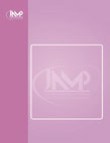Teaching Clinical Skills Using Online Modality through Modified Peyton’s Framework: An Experience from a Medical University in Pakistan
Author(s):
Article Type:
Research/Original Article (دارای رتبه معتبر)
Abstract:
Introduction
Medical institutions worldwide faced an unprecedented situation during COVID-19 of identifying alternative strategies to sustain the continuum of learning process. This led to several innovations in the traditional medical curriculum. This study explored the effectiveness and feasibility of using the Peyton’s framework modified for a virtual platform (Microsoft Teams) for teaching clinical skills to first and second-year medical students at The Aga Khan University, Karachi, Pakistan.Methods
In 2020-2021, the modified Peyton’s framework was integrated in the clinical skills (CS) curriculum for all first- and second-year students (N=200). For evaluation, a mixed-method design was used, with pre-and post-session questionnaires. Students’satisfaction was obtained through the standard session evaluation tool of the university. For the qualitative arm, to explore the instructors’experiences, purposive sampling was used (n=8) and a focused group discussion (FGD) was conducted. Finally, performance of the students at the end of year summative Objective Structured Clinical Examination (OSCE) was compared with the students of previous year. Quantitative data were analysed using STATA® version 15.1, using paired t-test to compare the differences in OSCE scores in selected CS stations. A p-value of <0.05 was considered significant for all tests. The FGD was transcribed and analysed through manual content analysis.Results
Nine clinical skills (that included history and examination skills) were taught using the virtual platform. There was a significant improvement in post-session questionnaires in seven of these skills (P<0.01). Session evaluations showed that most students were satisfied with the learning experience. The instructors showed that the online teaching offered a promising platform for teaching history taking skills. The OSCE scores showed mixed results, with significant improvement in two out of four repeated stations by using paired t-test [abdominal exam (87.33±8.99, <0.001); and precordial examination (88.45±8.36, 0.001)].Conclusions
Modifying Peyton’s framework to a virtual platform allowed us to sustain the continuum of clinical education during the COVID-19 pandemic. The results support the use of a blended learning environment for teaching clinical skills.Keywords:
Language:
English
Published:
Journal of Advances in Medical Education & Professionalism, Volume:11 Issue: 1, Dec 2023
Pages:
15 to 23
https://magiran.com/p2521957
دانلود و مطالعه متن این مقاله با یکی از روشهای زیر امکان پذیر است:
اشتراک شخصی
با عضویت و پرداخت آنلاین حق اشتراک یکساله به مبلغ 1,390,000ريال میتوانید 70 عنوان مطلب دانلود کنید!
اشتراک سازمانی
به کتابخانه دانشگاه یا محل کار خود پیشنهاد کنید تا اشتراک سازمانی این پایگاه را برای دسترسی نامحدود همه کاربران به متن مطالب تهیه نمایند!
توجه!
- حق عضویت دریافتی صرف حمایت از نشریات عضو و نگهداری، تکمیل و توسعه مگیران میشود.
- پرداخت حق اشتراک و دانلود مقالات اجازه بازنشر آن در سایر رسانههای چاپی و دیجیتال را به کاربر نمیدهد.
In order to view content subscription is required
Personal subscription
Subscribe magiran.com for 70 € euros via PayPal and download 70 articles during a year.
Organization subscription
Please contact us to subscribe your university or library for unlimited access!


